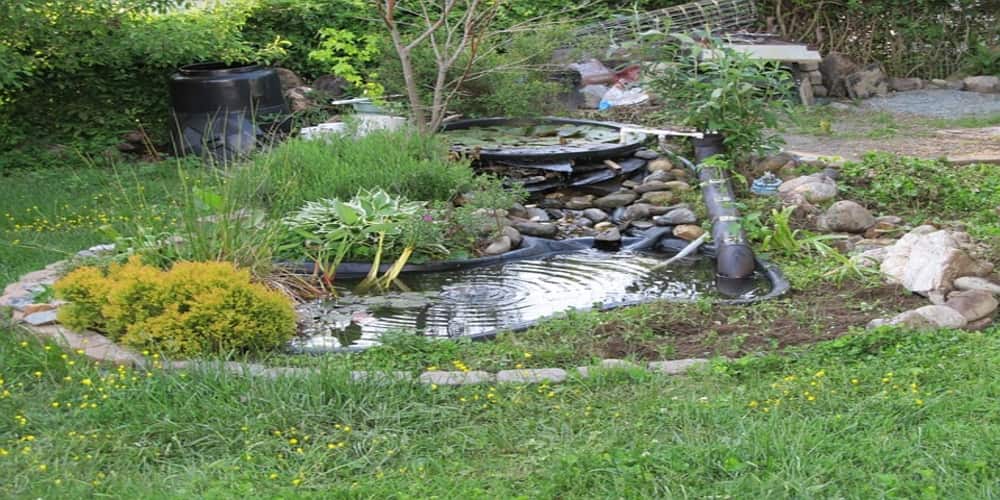If you have a pond at home, make sure you can show it off at your next party. The worst thing you can do is forget you have a backyard pond, and it slowly shows signs of looking like a gravesite of fishes and plants. Ignored ponds also become home to algae and fungi, which is not a pleasant sight, and they stink too. Maintaining a healthy pond becomes an essential part of your home maintenance too.
Cleanliness saves lives
Interestingly, the way you care for your pond changes with the seasons. Summertime cleaning routines differ from winter times cleaning routines.
The summertime
The best thing about the summer season is that your pond needs little cleaning. You will see plants and flowers such as lilies blossoming and your pond looking adorable, healthy and fresh. During the summertime, prune the lilies that have flowered and keep your plants well-watered; this will invariably allow them to blossom.
Beetle attacks
Ensure that your water lilies are kept safe from lily beetle attacks during summer times. Adult beetles attack the lily flowers while their larvae attack the leaf, turning them brown and killing the plant. Remove the damaged areas and prune them as regularly as possible.
Pollen
Summer is the time for pollination, and floating pollen will accumulate as debris in and around your pond. It can gather on your pond’s surface, making your pond look extremely dirty. Regularly clean pollen and other floating debris accumulated on your pond’s surface. You can use a pond skimmer that will allow you to collect the pollen and different types of dirt.
Low oxygen
In warmer climates, your pond can go low on oxygen. This can be attributed to the continuous evaporation during the daytime. However, plants and animals of the pond keep consuming the available oxygen. During the dark hours, water does not lose its heat entirely in summers and needs to continue evaporating, creating more oxygen deficiency. With no source of oxygen at night, there can be a severe disbalance that can affect the pond’s animals and plants. Tackle this issue by placing a pond pump to keep the water moving, preventing oxygen deficiency.
Winter maintenance
During winter, your pond can freeze if you are situated in zones where temperatures typically reach below zero. You will not be able to clean the pond during such extreme temperatures. Carve out time before freezing temperatures to take care of your pond.
Below 10*C
Start cleaning your water well before the temperature of your water hits 10*C. Fishes being cold-blooded animals, adapt to their surrounding temperature. Above 10*C, they will be very active and less likely to get injured as they move about.
Pump Maintenance
Since it will eventually freeze over, make sure your pond has its pumps and aerators switched off. If you decide to keep your pond live for the winter, keep the pump up and add pond heaters and de-icers if you live in a particularly icy zone. Once temperatures hit 0*C, the pipe works of your aerators will choke up with ice and may cause them to break. Once you decide to shut down your pond for the winter, clean your pumps of water and any organic material.
Debris
Tackle the surface debris with skimmers net. The pond floor will require a pump or a vacuum for cleaning. Remove the sludge on the sides of the pond too. Remove any dead plants or plants you think may not withstand the fall in temperature from your pond. These plants will eventually form sludge. If you wish to close your pond for the winter, cover it after cleaning, preferably without water, to have a fresh pond to start with after winter. If you decide to keep your pond live during the winter, consider making a water change.
Wish for some fish and they appear
Ponds are a natural habitat for a backyard pond. They are principally why people want backyard ponds. Fishes come in all shapes and sizes and at all price points. If you love buying the more unique ones, you will love the idea of getting the Koi. They have been around for a few centuries, bred in the 1700s in Japan. Admired for their beauty, they are associated with many myths and legends and thought to bring strength and perseverance.
Among the tons of fishes available for ornamental purposes, Koi are the top picks as pond fish. You can purchase premium Koi from Koi Kompanion, which can be added to your pond right away.
Test your water
Ensure your pond water has the right temperature and PH value before introducing your fish, and keep checking it periodically as well. A regular fish will have a pH value of 7.4. If you have pond water close to this value, it will be optimal to sustain any fish life. Your pH values can be anywhere between 6.5 to 9.0.
When it comes to temperature, pond water with a 68 to 74 degrees Fahrenheit temperature is ideal for fish to have a healthy environment and plenty of oxygen to breathe. Oxygen starts to escape water once the temperature rises above 85 degrees; hence having a moderate water temperature is ideal for sustaining life.
Oxygenate, but don’t suffocate
In some circumstances, air added to the water under pressure can create supersaturation. Although oxygen is essential to the pond ecosystem, especially if it has big fishes like Koi, it can be dangerous for the fish when the ecosystem achieves supersaturation.
However, that rarely happens. Fish and the filtration system use up oxygen in bulk. That’s why additional aeration is added to make it function effectively. Secondly, in warmer times, oxygen levels drop; therefore, suffocation due to supersaturation is hardly a concern. However, you may want to keep these facts in mind when maintaining your pond. Your pond will self-balance the oxygen once it is injected. However, it will require your help installing the right amount of air pumps to regulate the air inside the water.
Beautify the Pond
As a pond owner, you will find weeds and algae love your pond. They grow around it uninvited. It is normal; however, unroot them when maintaining your pond. For instance, cattails develop thick, rhizome mats that look like roots in the ground. When they are left as it is, new ones grow and are hard to tackle.
Always avoid algae because if they overpopulate the pond, they deprive the pond of oxygen, potentially killing the natural organisms in the water.
In any season, these fine points can transform your shabby backyard pond into a well-kept party-worthy backyard pond.




